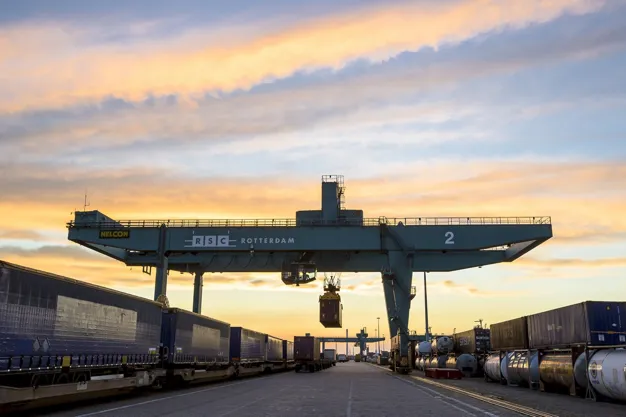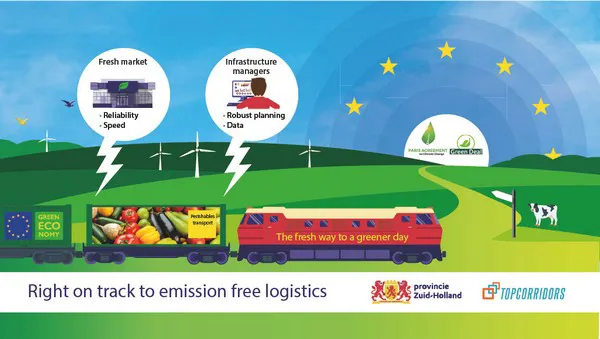The Dutch province of South Holland is making plans for an international fresh produce freight train. It is expected to start operating from Valencia via Rotterdam to Oslo sometime this year. The province presented the plan on Thursday, April 4, at the Connecting Europe Days transport fair in Brussels.
South Holland wants to use this pilot train to demonstrate that fresh food transport via rail can meet a significant demand. The train will carry oranges and tomatoes from Spain, salmon from Norway, and various fresh products from the Netherlands. This project is intended to begin a large-scale shift from road to alternative means of transport for fresh goods. It will start with one train per week. Once all the bottlenecks are resolved, multiple trains per day could become possible.

Should save a full day
Freight trains can bring fresh products from the farm to your plate faster, cheaper, and more sustainable. The travel time from Valencia to Oslo will be cut by a full day compared to road transport: from 100 hours by truck to 70 by train. Currently, 98% of fresh food still travels by road, even though international trains have been running since 1850. For a CO2 emission-free future, this can and must improve.
What is the hold-up? Not much. To change this, you only need a few measures: space in international schedules for priority train paths, less bureaucracy at the border, and uniform tariffs among Europe's different national railway companies. "Just as the smoothing out rules accelerated European road freight transport, the same must happen on the railways," says Frederik Zevenbergen, South Hollands' Traffic and Transport MP.
The right moment
As a logistics hub near large horticultural clusters, Rotterdam is already Europe's largest center for fresh products. Sea, inland waterways, and road transport converge there. Transporting fresh products by rail can reduce traffic congestion and emissions. For the pilot train, South Holland is joining forces with the national government, the Port of Rotterdam Authority, Greenports Netherlands, and the province of Limburg.

Various market parties, including COOP and fresh produce sector companies, were also involved in developing the plans. Maarten van Hamburg (Greenyard): "This is the moment; shifting from trucks to trains brings about a huge change."
Train transport also contributes to the European Union's various sustainability goals. "This is the right time to set the train in motion," adds Zevenbergen. All involved parties gathered yesterday. This includes the European Commission, the Trans-European Transport Network, various national ministries of transport, European rail freight coordinators, and fruit and vegetable companies.
Source: Province of South Holland
